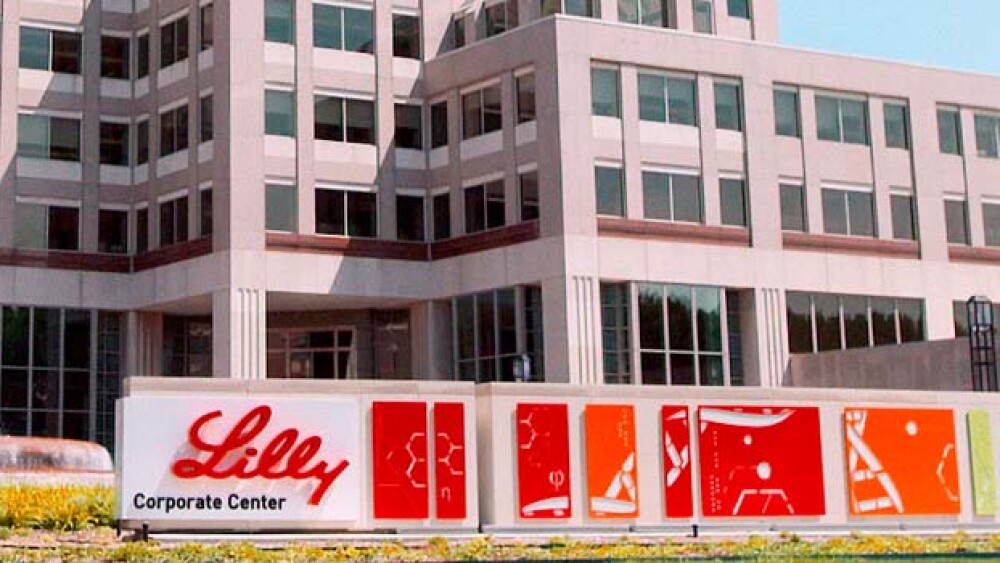Despite very positive results, the company’s shares were down 1.5% in premarket trading today. Vamil Divan, an analyst with Credite Suisse, wrote in a note to investors, that results “were fairly consistent across various patient subgroups and are clearly positive” for this class of drug, but “we believe investors may have been hoping for greater risk reduction.”
Eli Lilly and Company presented results from its REWIND clinical trial at the American Diabetes Association (ADA)’s 79th Scientific Sessions and simultaneously published the results in The Lancet.
REWIND showed that patients on Trulicity (dulaglutide) had a 12% reduction in major cardiovascular events (MACE) compared to patients receiving placebo. The study assessed the effectiveness of Trulicity 1.5 mg, a weekly GLP-1 receptor agonist, compared to patients receiving placebo in adults with type 2 diabetes. The focus was on cardiovascular (CV) events.
MACE, in this study, was a composite of non-fatal myocardial infarction (heart attack), non-fatal stroke, or CV death. The study showed a consistent reduction in MACE events in patients both with and without established cardiovascular disease and the risk was consistent through the duration of the trial. The trial is the longest CV outcomes trial, with a median of 5.4 years, in GLP-1 receptor agonist class of drugs. Most of the people in the trial did not have CV disease, although all had CV risk factors. Only 31% had established CV disease.
“Dulaglutide is the first type 2 diabetes medicine to significantly reduce major adverse cardiovascular events (MACE 3) in a study population where the majority of participants had CV risk factors without established CV disease,” stated Herzel Gerstein, professor of medicine and deputy director of the Population Health Institute at McMaster University and Hamilton Health Sciences. He was also the REWIND study chair.
Gerstein added, “REWIND showed that adding dulaglutide to the therapeutic regimen of type 2 diabetes will benefit a broad range of people.”
The study evaluated 9,901 patients with a mean age of 66.2 years and a median A1C level of 7.2%. Of the trial, 4,589 were women.
Despite very positive results, the company’s shares were down 1.5% in premarket trading today. Vamil Divan, an analyst with Credite Suisse, wrote in a note to investors, that results “were fairly consistent across various patient subgroups and are clearly positive” for this class of drug, but “we believe investors may have been hoping for greater risk reduction.”
Novo Nordisk, which markets a similar drug, ran a similar study in 2016, although not as long, on Ozempic. In it, patients receiving Ozempic had reduced major cardiovascular events among patients with increased CV risk by 26%.
The news, if anything, underlines how competitive the diabetes market is, particularly in the U.S., where there is steady downward pressure on pricing and increased competition.
For example, Sanofi presented data at the ADA meeting on its Soliqua compared to GLP-1 agonists, showing that has had superior decrease of A1C levels after 26 weeks compared to several of the other standard treatments for type 2 diabetes, including Novo Nordisk’s Victoza, GlaxoSmithKline’s Tanzeum or Lilly’s Trulicity.
Brad Woodward, global development leader, Incretins, Lilly, stated, “Trulicity is already well-known for helping people with type 2 diabetes reach their blood glucose goals with a weekly dose. Detailed results from our landmark REWIND trial demonstrate a cardiovascular benefit in a more representative population of people with type 2 diabetes. These data suggest Trulicity can help physicians and people with type 2 diabetes better manage blood glucose and cardiovascular risk over the long-term.”





